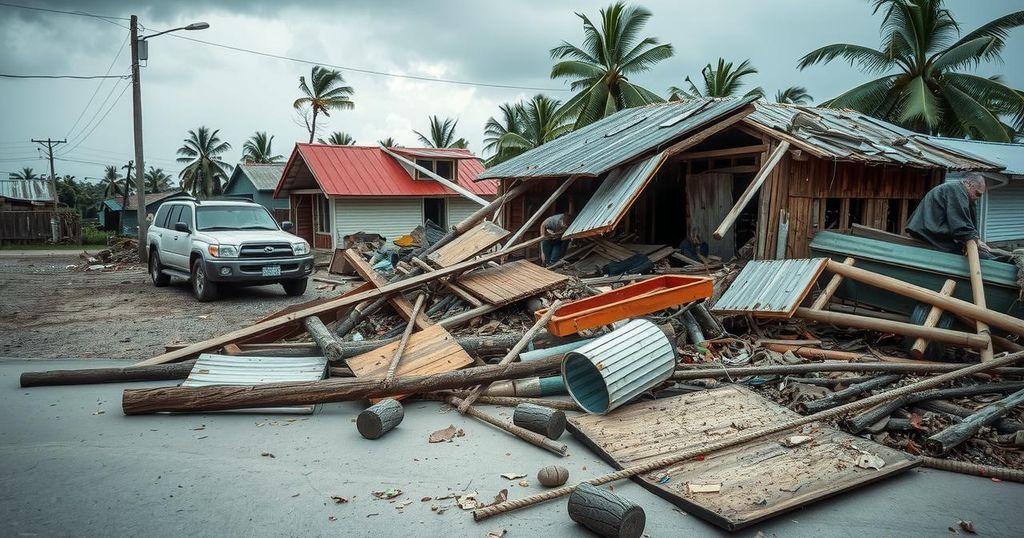Cyclone Chido has caused at least 34 fatalities in Mozambique, displacing thousands and damaging infrastructure. Areas like Nampula and Cabo Delgado were hardest hit, with ongoing heavy rains and winds persisting despite the storm being downgraded. Urgent aid appeals have been launched as relief efforts are mobilized for the affected regions, including a strong focus on children’s welfare.
Cyclone Chido has wreaked havoc across Mozambique, resulting in the tragic loss of at least 34 lives, as reported by the National Institute of Risk and Disaster Management. The cyclone impacted multiple provinces, particularly Nampula, which bore the brunt of its initial wrath. Thousands have been displaced, and significant infrastructural damage has occurred, including the destruction of homes and roads. Despite the storm being downgraded from its initial category, heavy rains and strong winds continue to pose dangers to the affected regions, necessitating ongoing vigilance and preparedness among the populace.
Cyclone Chido, which made landfall in Mozambique following its passage over Mayotte, marks one of the most severe weather events in the region in the past decade. The affected areas are already prone to cyclones and suffering from socio-economic vulnerabilities due to conflict and inadequate infrastructure. The cyclone’s aftermath has prompted significant humanitarian concerns, particularly for vulnerable populations, including children, who now face the risk of losing essential support systems such as shelter, healthcare, and education.
In summary, Cyclone Chido has left a devastating impact on Mozambique, with numerous casualties and substantial infrastructure damage. The need for emergency aid and precautionary measures remains critical as authorities work to mitigate the ongoing risks presented by this severe storm. Continued international support and local cooperation will be essential to assist the affected communities in recovering from this disaster.
Original Source: www.rfi.fr






